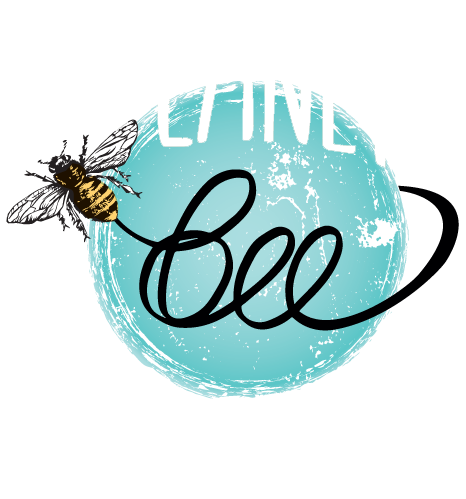The Sacred Bee: Ancient China
- Ayla Fudala
- Feb 3, 2023
- 2 min read

We know that bees were plentiful in ancient China, but there are very few mentions of them in record or folklore. The word "feng" was used to refer to both bees and wasps, but honey bees were distinguished as honey-fengs, or family-fengs (domesticated bees). Earth-fengs, or ground-bees, which carry off caterpillars to feed their young, were believed by the Chinese to train these caterpillars to become bees! Another amusing superstition held that in the K'un-lun mountains there was a bee ten feet long, with a sting that could kill an elephant!

There were a few popular sayings relating to bees, such as "Bees make honey and men eat it," and "When the nest is destroyed, others get the honey". Chinese beekeepers used to practice a form of beekeeping in which the hive was destroyed when the honey is taken. For hives, they used a basket smeared with mud, which they placed on a piece of wood driven into the side of the house high off the ground. They also caught swarms inside their hats, which they covered on the inside with honey. During the seventh and eight centuries, honey was mixed with opium.
There are a few superstitions relating to bees. In some regions, hives are turned around
after the death of their owner. The passage below, taken from Shi-Chin's 1553 work "Chi-pei-yau-tan", shows, that the Chinese considered swarms good luck.

"The inhabitants of certain mountains south of Yau-yue are all in a lifelong ignorance of the calendar, but in its stead they observe punctually every morning and evening the hives which the family keeps. Whatever day the bees happen to swarm, is deemed unfailingly lucky. Should some business chance be unfinished in the day, it is put off till another occasion of bees swarming. On such a day are also celebrated ordinarily the ceremonies of marriage and of beginning buildings. Thus, swarm in whose house the bees may, the servants and neighbors go round the place with the news; indeed the people never attempt to conceal the fact. Once upon a time a trading stranger came and sojourned in the locality for a year, and during that time he attentively recorded the days on which the bees swarmed, although numbering one hundred odd. Upon his return home he examined the calendar, and was astonished on finding those days without exception marked dies albi; whereas all other days on which the bees did not swarm were either marked unlucky or of no import. So wonderful is the mystic instinct of these animals which enables them to communicate freely with the creator."
Here again we find a link between bees and heavenly powers, a belief that bees were the messengers of the gods. This belief was also prevalent in the West.
Until next time, we wish you swarms aplenty!
Source:
Ransome, Hilda M. "The Sacred Bee in Ancient Times and Folklore". London: George Allen & Unwin, 1937. Pp. 19-41.
*******
Written by Ayla Fudala
Planet Bee Educator Emeritus and Guest Writer
Graduate Student at the University of Glasgow
